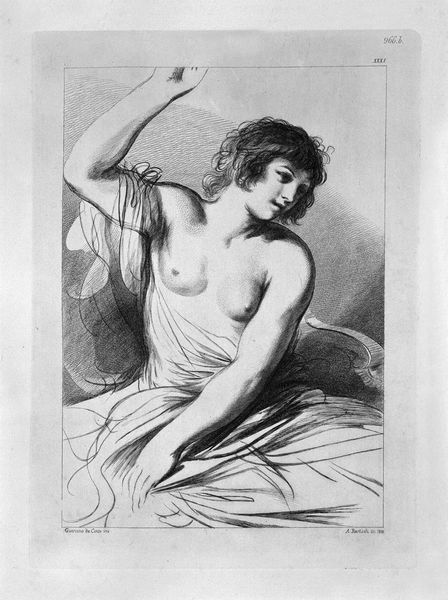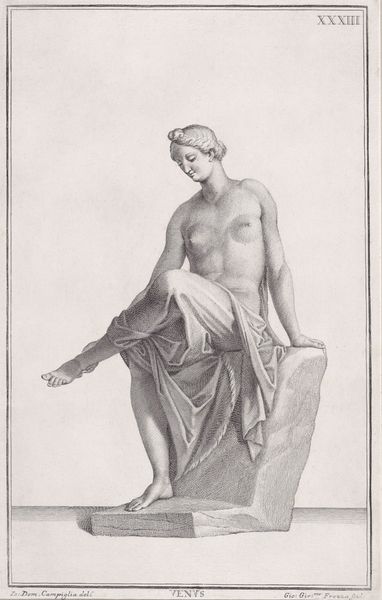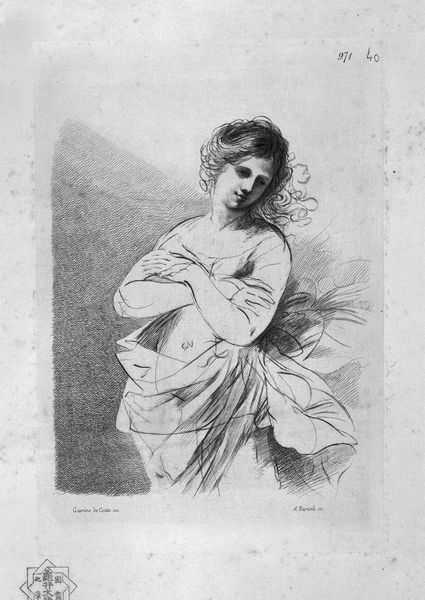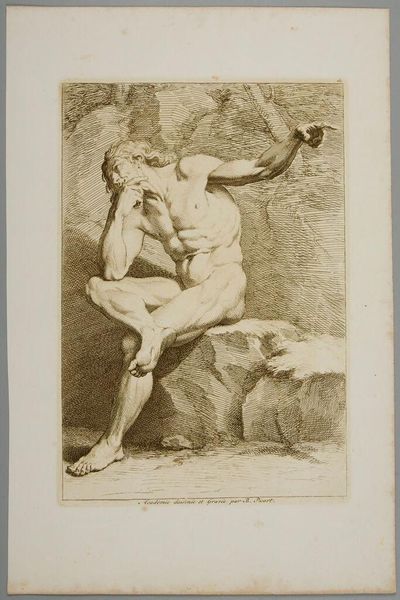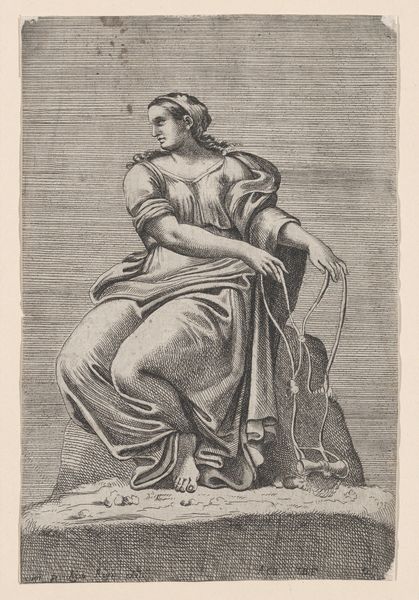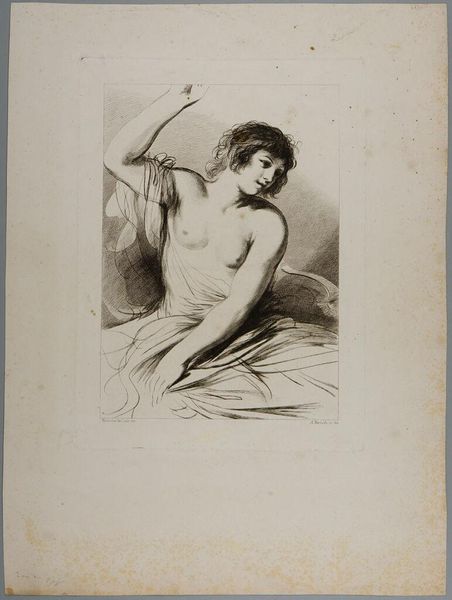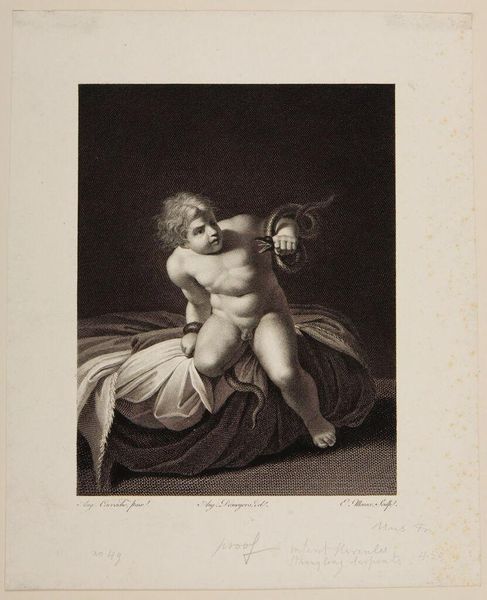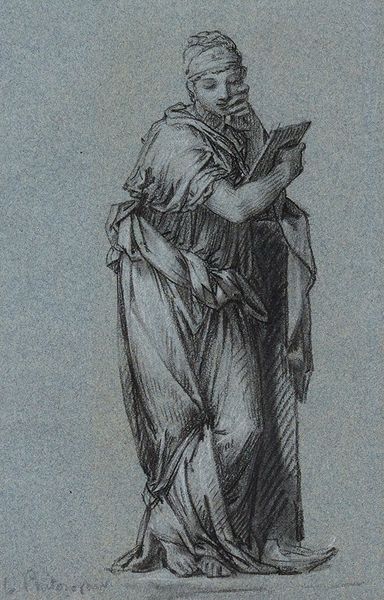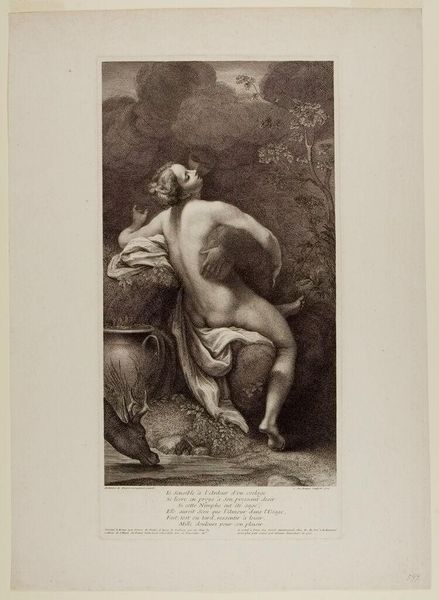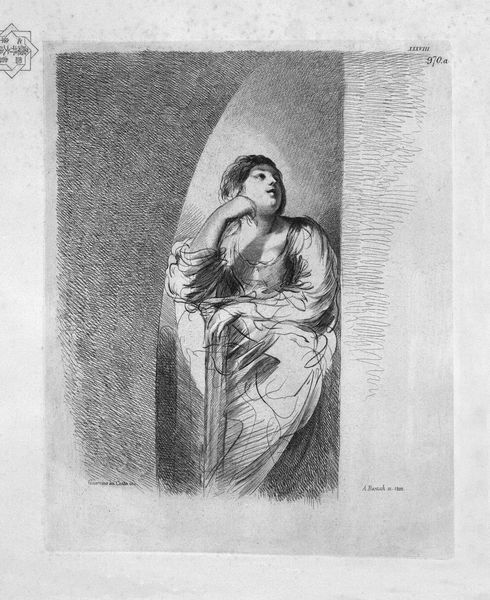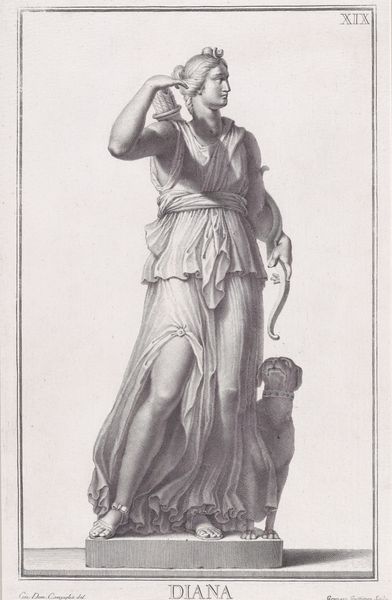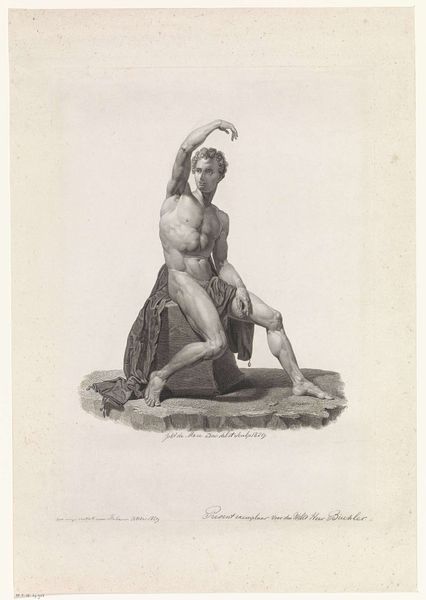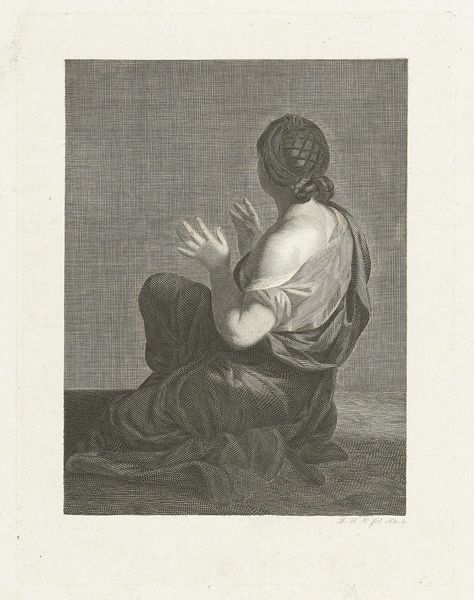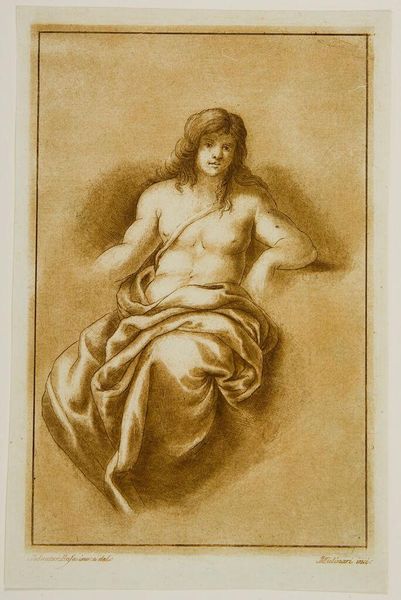
Study for the Adulteress: half figure with folded arms, from Guercino
0:00
0:00
drawing, paper, engraving
#
drawing
#
charcoal drawing
#
figuration
#
paper
#
form
#
romanticism
#
line
#
portrait drawing
#
history-painting
#
charcoal
#
nude
#
graphite
#
engraving
Copyright: Public domain
Giovanni Battista Piranesi created this etching titled 'Study for the Adulteress' in 18th century Italy, after a drawing by Guercino. Piranesi was not just an artist but also an important dealer and collector. This print reveals much about the artistic culture of the time and how the art market functioned. Prints like this allowed for the wider circulation of artworks and ideas. The choice of subject - the 'Adulteress' - is also telling. In a society governed by strict moral codes, the figure of the adulteress would have been a potent symbol of transgression. Studying the provenance of prints like this, tracing who owned them and where they were displayed, can give us insights into the social and cultural values of the time. We can look at how these images were received by different audiences, and how they were used to reinforce or challenge existing social norms. Ultimately, understanding art requires understanding its place within the broader currents of history.
Comments
No comments
Be the first to comment and join the conversation on the ultimate creative platform.
